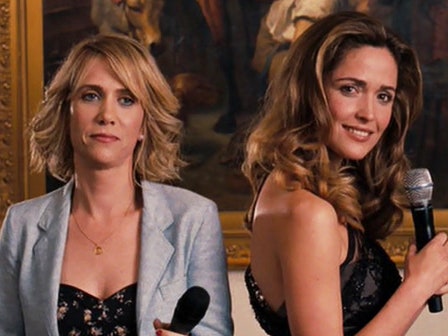We’ve all been in this situation before. A friend shares good news, like “I got my dream job”, “I’m moving to Italy” or “I’m engaged”, and there’s a celebratory embrace. But within seconds, behind the veil, that inner voice takes the microphone and squashes the moment, yelling, “but what about me?”
The mind quickly scrambles to the invisible life to-do list. A double degree by 25… a year of continent hopscotch by 27… a house by 29… all in time for getting married by 30.
But this isn’t how life works. The human experience isn’t linear. It’s full of twists and turns, zigs and zags, contraction and expansion.
Yet, no one tells us this. Certainly not in society’s ‘do this by that age’ narrative. So, we walk away from these special moments with friends feeling selfish, wondering what’s wrong with us – then, most probably, jump on social media to self-soothe, which only reinforces our inadequacies.
Social media is complicated
Social media is, plainly, another iteration of what’s been happening on a macro level culturally, for decades. Pop culture has long glorified beauty, wealth, fame, finding ‘the one’, and the traditional family structure. Facebook, Instagram, TikTok and the likes, continue to glamourise the best-of showreel of our lives. That enviable office view, that expensive engagement ring, that winter tropical island set-up.
The only problem is, this isn’t real life – but we think it is.
Leon Festinger coined the term, ‘social comparison theory’, to explain how individuals determine their own social and personal worth based on how they stack up against others. It’s a positional bias, reinforcing self-worth (or lack of) based on this mainstream education-dream job-wealth-love-house-kids ‘success trajectory’. Throw in the perfect body, backpacking around the world and building a business empire in the mix, and no wonder we’re paralysed.
The urge to compare is natural

See, for the first (extremely formative) quarter of our lives, we grow up in the close company of classmates. We share major milestones – such as our first love, graduation, and getting into university. To expect us not to compare is going against the way we were raised and socialised. We then transition to adulthood, into a society that endorses competition and perpetuates this comparison-state.
We’ve seen this continue in the wake of the Covid-19 pandemic. Even in the most challenging health, economic and social crisis of our time, the message was: make the most of the lockdown. Write that book, learn new hobbies, launch that side project or get shredded. This time is ripe with opportunity. Don’t waste it.
But interestingly, what’s emerged is a collective rebellion against this notion (and everything it embodies). It’s given many people the permission to short-circuit the system that’s impossible to keep up with and opt-out of this temptation to always be achieving.
It was the refuge society needed to reflect, regroup and redefine what’s important. To challenge the status quo and interrogate thoughts and emotions, through a different lens. To learn to understand to differentiate between what we want versus what we’re told (and absorbed unconsciously). To prod and poke at the question: Do I actually want this or do I think I want this?
According to Sociologist, Sinteché van der Merwe, comparison isn’t necessarily a bad thing. In fact, it can be a healthy and positive trait for humans, fostering a spirit of progress and innovation.
“Social Comparison Theory has two elements. We can compare ourselves downwards or upwards, either better or worse off than others. The downwards can actually ignite feelings of gratitude and the upwards is an opportunity for inspiration from these ‘role models’. To an extent, it can help to boost whatever development we’re actually seeking. Upward comparison can boost us into doing something for the better,” Sinteché said.
She believes there’s an evolutionary aspect to it. That larger societal measurements span humanity and exist to actually push us forward. She uses the frog pond effect: would you rather be a big fish in a small pond or a small fish in a big pond? The latter offers room to grow and expand, which is part of the human experience.
“We have to start reflecting on the process of comparison, so it’s not mindless,” Sinteché continued.
“We need to recognise our triggers and use these ‘jolts’ as a tool to check in and re-proritise what’s important to us. There is a space for us to be happy for people and it’s at the tail-end of this reflection. But it’s a process that requires patience and a lot of ‘let’s think about this’ and what it’s bringing up?”
Sinteché adds that this is part of a larger phenomenon.
“It’s the setting of standards and those markers always change. This goes beyond making personal comparisons within a small group. It’s a reflection of a larger conversation. There are certain rites of passage that, if we don’t hit, we’re pigeonholed. The era that we’re in, it’s easier to disrupt those narratives but, within that, iterate into its own set of standards. The new isn’t always an improvement of the old. It’s just different.”
To better understand why we compare, Sinteché suggests examining conformity, group dynamics, and how normalities form. Conformity, for example, is used to indicate an agreement to the majority position, brought about either by a desire to ‘fit in’ or be liked (normative), because of a desire to be correct (informational), or simply to conform to a social role (identification). It’s human nature to want to belong, which circles back to Sinteché’s hypothesis, that comparison is evolutionary.
In other words, we need to not be so hard on ourselves.
Maybe what you’re feeling isn’t jealousy?
Sharpening our ability to observe and reflect on what comes up in moments where we should be over the moon for other people is important. We need to sit with those uncomfortable feelings, in a non-judgemental state. To put aside the “what is wrong with me?” internal chatter and view the response through a different lens – as inspiration.
Jealousy or envy could be shallow labels for what’s really happening. Maybe these feelings are a nudge that this achievement is something to pursue? That there’s a unique version of your friend’s experience for every one of us. Comparison takes on a different (and productive) perspective in this light.
As Dr Nicole LePera, a clinical psychologist says, we think people are triggering us but they’re just holding up mirrors for us to see our blind spots. So, what are these responses trying to tell us? That’s the question we should set out to answer.
Instead of going down the jealousy rabbit hole on Instagram, turn off the phone and open up a notebook. Give your heart, not head, a chance to speak. We’re all just human beings after all.

Leave a Reply
You must be logged in to post a comment.